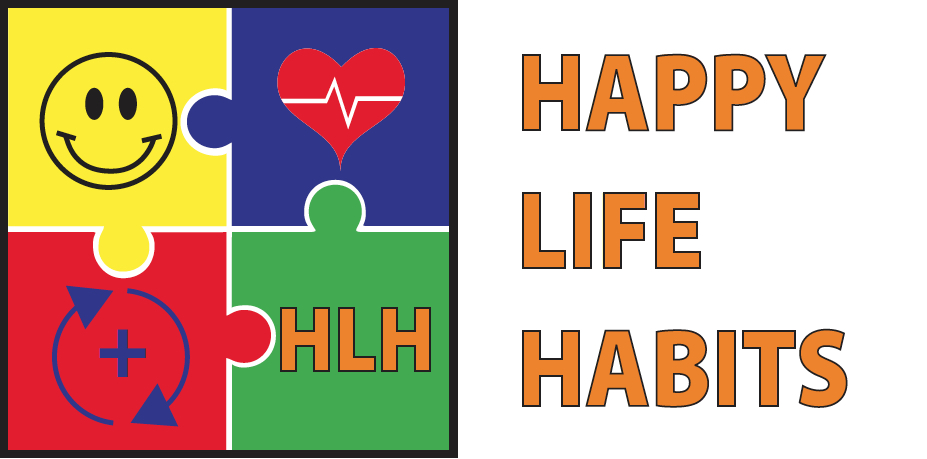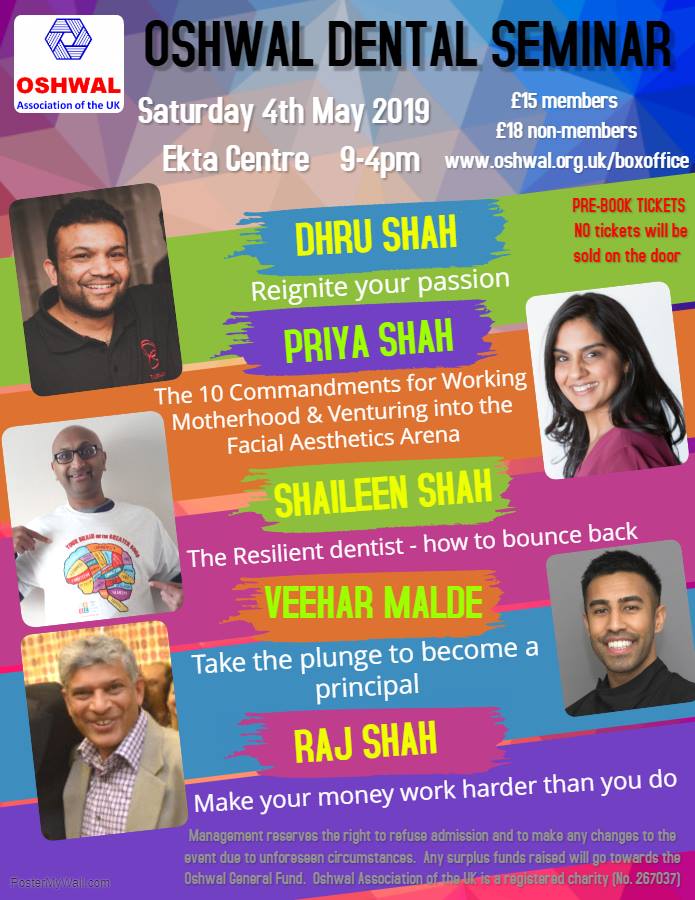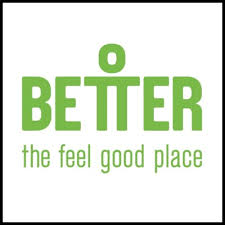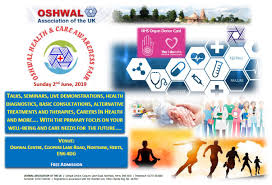
ARTICLES & BLOG
Why be Happy, Healthy, Wealthy and Wise?
This article was written for the Oshwal Health and Care Fair Brochure as part of the Oshwal Health and Care Fair in June 2019 where Happy Life Habits had a talk on Stress and Resilience.
Why be Happy, Healthy, Wealthy and Wise?
Recently I read
“You only live once. That is incorrect! You die once but you get to live every day.”
This article was written for the Oshwal Health and Care Fair Brochure as part of the Oshwal Health and Care Fair in June 2019 where Happy Life Habits had a talk on Stress and Resilience.
Why be Happy, Healthy, Wealthy and Wise?
Recently I read
“You only live once. That is incorrect! You die once but you get to live every day.”
Developing habits to be happy, healthy, wealthy and wise you can live a very happy, fulfilling, meaningful and harmonious life each and every day with great energy, focus and resilience, as well as problem solving capabilities. I am excited to share scientific insights and practical tips on how you can do this.
What is Happiness? What is The Science of Happiness
Happiness is more than a fleeting emotion. It is an innate part of who we truly are. From my field, The Science of Happiness, I share the definition researcher and author of “The How of Happiness”, Sonja Lyubomirsky:
“The experience of joy, contentment, or positive wellbeing, combined with a sense of one’s life is good, meaningful and worthwhile”
Take a moment to reflect and absorb that definition.
The Science of Happiness does research and experiments to find out the things that make us happy, as defined above. It covers all of these areas in the diagram titled “Your Brain on Greater Good”.
What we in the field are finding is that many of the factors leading to following can be managed, so that we can lessen or prevent:
Depression, anxiety, low self-esteem, overwhelm, loss of direction and low productivity. We know how this all impacts our relationships, sense of loneliness and life balance.
The science show us that there are regular practices and habit which help rewire the brain and increase the happy chemicals - Dopamine, Oxytocin, Serotonin and Endorphins - and all without the use of medicine or drugs.
What is Health?
The World Health Organisation, WHO, defines health as:
“Health is a state of complete physical, mental and social well-being and not merely the absence of disease or infirmity”
Health is a dynamic condition resulting from adapting and adjusting to changes and stresses in our environment.
For me it has 4 components; 3 of which are covered by the WHO definition. These 4, according to the Stephen Covey classic “The 7 Habits of Highly Effective People”, make up the 4 human dimensions. They are: Physical, Mental, Social/Emotional and Spiritual. All 4 are interconnected and when any one of them is negatively impacted we feel imbalanced, out of sorts and not our whole self, not being able to fully engage with life. For example, a physical injury such as a sprained foot can impact your mental and emotional wellbeing with thoughts and feelings of pain. Or when you are stressed or worried about something, those feelings can manifest in physical conditions, such as not being able to sleep, loss of appetite and feeling down.
All 4 dimensions are required to be healthy and live a full life.
What is Wealth?
If you have jumped straight to this section without reading the previous ones go back!⇑
Wealth in some cases is described as a large amount of money or valuables that someone has. It is also described as a large amount of something good e.g. “He has a wealth of experience in teaching”. There are many options to learn more about wealth from individuals, companies, books and groups.
A lack of wealth can cause unhappiness and health concerns. In many cases the paradox is that the pursuit of wealth leads to a decline in health and then that wealth is needed to restore or manage the health.
A certain amount of money is needed to live well in the world. For each person this is a different amount. Consider how much you really need and how much is for your wants. The Science of Happiness says that earning above $70,000 does not significantly improve a person’s happiness.
In research, one group were given some money, about $20, and told to spend it on themselves and another group given the same amount of money and told not to spend it on themselves. The group that spent it on someone else had higher happiness levels. Also spending it on experiences as opposed to material things led to more happiness.
My own take on this is that a certain amount of money/assets etc. is needed to live well - think how much you really need. However real wealth is bigger than the finances, money, assets, and properties. It cultivates an abundance mindset - that there is enough for everyone. It encompasses giving the wealth of our time, energy, knowledge, service and money for a greater good. Being present, being there.
That the wealth should flow and do as much good as possible. Earn it, save it, invest it, grow it, protect it and share it.
Warren Buffet one of the richest person in the world and a great investor is quoted as saying
“The best investment you can make is in yourself”
What is Wisdom?
Wikipedia defines wisdom as
“Wisdom, sapience, or sagacity is the ability to think and act using knowledge, experience, understanding, common sense and insight”.
From our health perspective The Serenity Prayer provides wise advice:
“God grant me the serenity
to accept the things I cannot change;
Courage to change the things I can;
And wisdom to know the difference.”
Keep learning. From the Science of Happiness we know that learning new things positively impacts our happiness. Talks on Dementia highlight that an active, learning brain can help prevent or reduce the onset of Dementia. When learning, the brain is making new associations, connections and wiring the neurons. Learning new positive habits helps us feel good, stay well and deal better with life challenges. Some happy habits are counting your blessings, 3 good things –listing 3 good things that happened to you each day and mindfulness. The key is to practice them regularly so they become a daily habit and part of your lifestyle.
Patch Adams
Patch Adams the real life doctor who was played by the magnificent Robin Williams in the inspiring film of the same name has said:
“When we treat an illness we either win or lose, but if we treat the person, listen to them and love them, we can’t fail”
“The most radical act anyone can commit to is to be happy”
Benefits of Happiness & How to practice
Often when we have something we do not appreciate it until we lose it. This is often the case with good health, we often do not worry about it or pay much attention to it until it starts to deteriorate or be lost. That is where the practice of Gratitude, being grateful and counting our blessings comes in.
Some scientific proven benefits for happiness - in particular Gratitude - from Gratitude Researcher Robert Emmons:
Practice of gratitude has dramatic, lasting and positive results: every time
Journal Diary - 2 weeks - sustained reductions in stress (25%) and depression (16%) in health care practitioners
23% lower levels of stress hormones (cortisol)
10% improvement in sleep quality in patients with chronic pain (76 % had insomnia) and 19% lower depression levels
Letter of gratitude reduced feeling of hopelessness in 88% of suicidal patients and increased levels of optimism in 94% of them
References
Lyubomirsky, Sonja : “The How of Happiness”
Greater Good Science Center, University of Berkeley: Image of Brain on Greater Good
Covey, Stephen : The 7 Habits of Highly Effective People
WHO, Definition of Health : https://www.who.int/about/who-we-are/frequently-asked-questions
Emmons, Robert : The Little Book of Gratitude
Williams, Nick - Patch Adams quote: The Work we were Born to Do
About the Author
Shaileen Shah is a Happiness Coach, Speaker and Trainer. Previously having been in finance technology for the investment banking arm of RBS during the RBS takeover of Natwest, the RBS takeover of ABN Ambro and the financial crisis he has experienced the challenges brought by uncertainty, change and stress. He is certified in The Science of Happiness and shares through Happy Life Habits. Happy Life Habits Positively Impacts Happiness & Well Being Levels by creatively and uniquely combining Personal Development + The Science of Happiness + Spirituality. A business for Good; supporting the UNs Sustainable Development Goals. For more information see HappyLifeHabits.co.uk.
Inspired Mindful Moments During Taxing Times
I had not planned to write this blog but had an inspired mindful moment. Today is the last day of the current tax year. I remember a quote I had seen when I was younger.
Born Free, but taxed to death!
Tax, money, work, health, parents, kids, family, relationships, traffic, Brexit or lack off can all cause us stress. Stress in itself is not a bad thing, it is the body’s coping mechanism to deal with perceived threat and help us survive. The problem occurs when we have constant stress which are greater than our capacity to deal with them. Fortunately we can nurture, practice and develop coping systems that increase our capacity to deal with and bounce back. This is known as resilience. Happy Habits such as mindfulness and gratitude help build our resilience, perspective, ability to cope and find solutions.
Over the next month and bit I am fortunate to take part in various events where I can share about stress, resilience, mindfulness and happiness.Some are free public events and some are ticketed events. Details are below.
4th May “The Resilient Dentist” : Oshwal Dental Group
14 May “Mental Health Awareness: Habits for Happy Mental Health” : GLL Better Finchley Lido
30 May “Mental Health Awareness: Habits for Happy Mental Health” : Shishukunj
02 June “Journey from Stress to Happiness”: Oshwal Health and Care Fair : Oshwal Centre
In June I will be hosting an online 21 Day Mindfulness Challenge
If you are coming to any of the events let me know, would love to say hi.
I have capacity to share more and would love to do more events. So If you have opportunities at your work place or group let me know, especially for Mental Health Awareness, Resilience or Well Being.
International Day of Happiness
Have a Happy day celebrating The International Day of Happiness. Smile. Think of something you are grateful for. What good things happened to you today. Practice a mindful moment. Do a random act of kindness. Sign up to the Happy Life Habits newsletter.
Happy Life Habits supports the UNs Sustainable Development Goals.
https://www.happylifehabits.co.uk/business-for-good/
I've got the Blues on Blue Monday!
Today, the 3rd Monday in January is known as Blue Monday when many people feel at the lowest, depressed and unhappy. This is supposedly due to some factors occurring at a similar time which include Christmas being a fading memory, payday still a week away,January bills coming through, rest of the year still to go through, high hoped resolutions broken, cold, gloomy weather, government uncertainty on Brexit and such factors.
Ways to combat Blue Monday….
Realise that today is also a Super Red Moon not to be repeated for 10 years
Seeing the beauty of nature ( I saw a gaggle of geese fly in V formation overhead)
Write down 3 things that your are grateful for
Write down 3 things that would make today great
Write done 3 things you are looking forward to this year (family weddings, holiday, get together etc)
Take a moment to enjoy mindfulness and focus on your breathing, do a short body scan, a mindful walk or mindful eating
Read and share an inspiring quote e.g “Every day may not be a good day, but there is good in every day”
Read and share an inspiring story
Tell a joke
Laugh out loud for no reason
Call a friend, have chat
Get together for a coffee or meal with a friend or family member
Give a donation to a good cause (time or money)
Cuddle a dog
Do an act of kindness
Do 5 star jumps, some exercise
Attend the last day of Museum of Happiness, Winter Happiness Festival and take part in a Sound Bath
What are some of the ways you can think of ?
HAPPY HABITS FOR HAPPY LIFE
Habits run our life.
They can serve us or dis-empower us. They can be 40% of our behaviour in any given day. We can have bad habits or good habits. Cultivate good, positive habits that serve and empower you.
By definition a habit is “An action or decision repeated and repeated till automatic”. It is moving from the conscious mind to the subconscious.
Habits run our life.
They can serve us or dis-empower us. They can be 40% of our behaviour in any given day. We can have bad habits or good habits. Cultivate good, positive habits that serve and empower you.
By definition a habit is “An action or decision repeated and repeated till automatic”. It is moving from the conscious mind to the subconscious.
“We are what we repeatedly do. Excellence, then, is not an act but a habit”
One of my favourite books and one that has had a big influence on me is Stephen Covey’s fantastic book “The Seven Habits of Highly Effective People”. He defines “A habit is the intersection of knowledge (what to, why to), skills (how to) and desire (want to)”. All three must exist - the knowledge of what to do and why to do it, the skills on how to do it and the desire to want to do it.
SEVEN HABITS
He highlights 7 Habits for Lessons in Personal Change. These Habits are:
Be Proactive - The Habit of Choice
Begin with the End in Mind - The Habit of Vision
Think First Things First - The Habit of Integrity and Execution
Think Win-Win - The Habit of Mutual Benefit
Seek First to Understand and then to be Understood - The Habit of Mutual Understanding
Synergize - The Habit of Creative Cooperation
Sharpen the Saw - The Habit of Renewal
THE ANATOMY OF A HABIT
A habit has 3 key components :
A cue or trigger / reminder
An action of routine
A reward
This is the habit loop - a cue occurs that leads to an action and then a reward and then this is repeated and repeated.
For example, with the smoking habit
Cue - Feeling of stress and work colleagues going outside for a break
Action - Take cigarette, light and smoke it, chat with work colleagues have a break
Reward - Feeling less stressed, social connection, be outside
Another example, taking a mindful moment
Cue - Feeling of stress or overwhelm
Action - Take a moment outside to go for a mindful walk, focusing on your breath or each step
Reward - feeling less stressed, be outside
Action: Identify the Cue, Action and Reward in one of your dis-empowering and one empowering habit
KEYSTONE HABITS
One type of habit is the Keystone Habit. A Keystone Habit is one that leads to the development of multiple good habits. They start a chain effect of positive results. According to Charles Duhigg, “The Power of Habit” , keystone habits have the power to transform your life. An example is regular exercise also fosters better eating habits. Or sleeping 8 hours a night fosters better energy and productivity.
The name Keystone comes from the building of an arch. The last stone, a wedge shaped one to be put in place at the apex is the keystone (or capstone) which locks all the others in place, providing structure and allowing the other stones to bear the weight.
“Goals set a target/direction, like a Sat Nav. Habits help us progress towards the goal. It is the process /action/decision”
ATOMIC STEPS
Think small, easy, tiny, atomic actions/ habits. This is related to the idea of marginal gains, small changes done each day that over time compound (See books The Slight Edge and The Compound Effect). The British Cycling team used this idea to make small changes in all areas that led to great success. E.g teaching cyclists how to thoroughly wash hands to avoid infection, change in bike material to be marginally lighter, taking cyclists bed mattresses and pillows to hotels so they feel at home and rested.
Some more examples of atomic steps
for exercise to get to 20 push ups a day, choose and commit to 1 push up each day.
For dental hygiene choose and commit to 1 tooth flossed each day.
For reading choose and commit to read 1 page each day.
These should be easy to do, take little time and are foundations to add to and build from as progress and momentum is made.
SET YOURSELF UP FOR SUCCESS
Layout your tools, supplies, equipment.
For running have running shoes and gym bag by bed or door.
For reading have book by bedside or in daily bag.
For a dis-empowering habit such as smoking cigarettes do the opposite - make the action difficult to do e,g put cigarette pack in a locked box, outside of house in far corner of garden and give key to friend who lives 30 minutes away.
“Motivation is what gets you started. Habit is what keeps you going”
As we repeatedly do something the neurons in the brain fire and wire so with repetition new wiring / pathways are created which become stronger and replace the previous created ones.
“Repetition is the mother of skill”
SETTING YOUR OWN HABITS
We can have goals and habits in all aspects of our life including: Relationships, Work/Career, Family, Health, Spiritual & Financial.
Here are some guidelines to help build successful, positive, empowering habits.
Identify a cue or cues e.g. Set a time and location, use phone reminder, post it note
Think small, easy, tiny, atomic actions/ habits.
Set yourself up for success - create environment, layout supplies
Have a partner or community who are also working on same things
Pick yourself up if you fall, get back on track
Celebrate the successes
It takes 21 days to create a habit, 90 days to create a lifestyle.
Jerry Seinfeld the comic has reportedly used a yearly wall planner to develop his habit of writing a joke each day of the year. Each day he writes a joke and then marks a cross on his planner. This visual cue and action becomes the habit where he does not want to break the chain. For effective habit formation - monitoring and measured are needed. As the saying goes “What gets measured gets done”.
Consider your existing habits and ones you want to develop …
What is the cue?
What already existing Habit/Cue can I link this with?
What is the action?
What is the reward?
What are the obstacles I may face?
How will I overcome the obstacles?
MY PERSONAL EXPERIENCE
My keystone habit is the daily practice of gratitude, actively and consistently since the start of 2017. This has supported additional habits of:
daily journaling using a happiness journal,
regular reading and study,
Mindfulness & meditation (Monthly Awakin circles - Awakin.org)
exercise - playing badminton twice a week, walking, swimming and sauna,
regular prayer and service.
I have developed habits in the areas of Physical, Mental, Social/Emotional and Spiritual, these help me lead a happy, effective, productive and meaningful life. I wish you the same.
“Sow a thought, reap an action,
Sow an action, reap a habit,
Sow a habit, reap a character,
Sow a character, reap a destiny”
Shaileen, with Vicky Johnson and Shamash Alidina, the founders of the Museum of Happiness are sharing a Habits of Happiness workshop at the Winter Happiness Festival.
Content Sources for article
The Seven Habits of Highly Effective People - Stephen Covey
The Slight Edge - Jeff Olson
The Power of Habit - Charles Duhigg
Atomic Habits - James Clear
The Compound Effect - Darren Hardy
How to develop better habits in 2019 - Ryan Holiday







